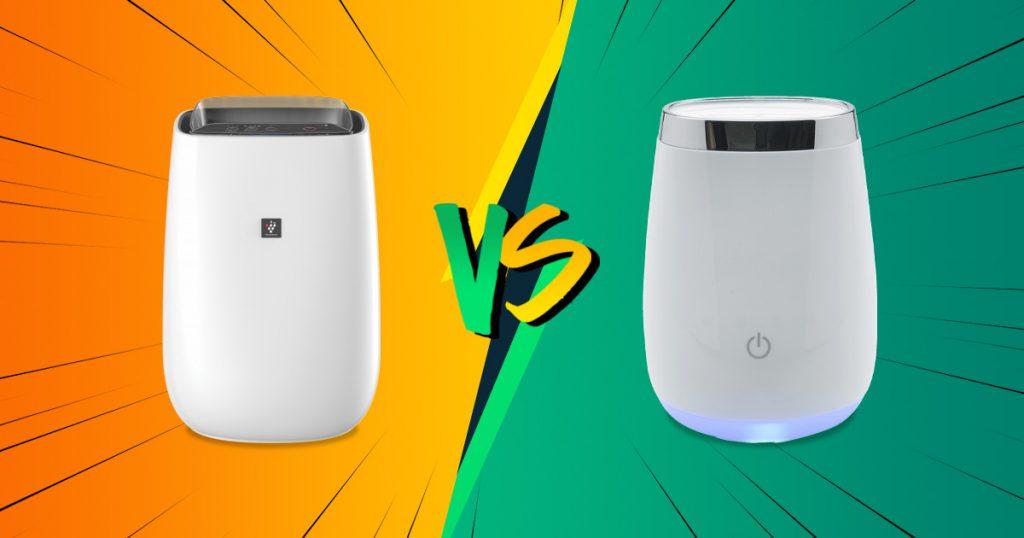Allergies are common health issues that affect millions of people worldwide. They occur when the body’s immune system reacts to a foreign substance, known as an allergen, such as pollen, pet dander, or certain foods. These reactions can range from mild symptoms like sneezing and itching to severe conditions like anaphylaxis.
According to the American Academy of Allergy, Asthma, and Immunology (AAAAI), sensitization rates to one or more common allergens among school children worldwide are currently approaching 40%-50%. In the United States alone, over 50 million people suffer from allergies each year. The most common allergies include food allergies, affecting 6.2% of U.S. adults and 5.8% of U.S. children, and seasonal allergies, with about one-quarter (25.7%) of adults diagnosed with it.
To combat these allergies, many solutions have been proposed, including medication, lifestyle changes, and the use of devices like essential oils, humidifiers, and air purifiers. But how effective are these solutions? And among them, are humidifiers or air purifiers better for allergies?
Humidifiers vs. Air Purifiers: What’s the Difference?
Humidifiers are devices that increase the amount of moisture or humidity in a room. They work by converting water into vapor, which is then dispersed into the air. This can alleviate dryness in the throat, nose, lips, and skin, and can ease some of the symptoms caused by the flu or common cold. However, if the humidity level gets too high, it could potentially lead to other health problems, like mold and fungi growth.
Air purifiers, on the other hand, are designed to clean the air in a room by removing contaminants such as dust, pollen, and other allergens. They work by circulating the air through filters that trap these particles. Some air purifiers also use ionizers to attract particles using static electricity. Air purifiers can be particularly beneficial for people with allergies or asthma.
Which is Better for Allergies: Humidifier or Air Purifier?
While both humidifiers and air purifiers can help with allergies, they serve different purposes.
Air purifiers are generally more effective at preventing allergy symptoms because they remove allergens from the air before they can cause a reaction. For instance, air purifiers with HEPA filters can capture 99.97% of particles that are 0.3 microns in size, including common allergens like dust mites, pollen, pet dander, and mold spores.
Humidifiers, on the other hand, can help alleviate allergy symptoms once they occur. By adding moisture to the air, they can soothe dryness and irritation in the throat and nasal passages caused by allergies. However, they do not remove allergens from the environment, and if not properly maintained, they could potentially exacerbate allergy symptoms by promoting mold and dust mite growth.
Understanding the Pros and Cons of Air Purifiers and Humidifiers
Air purifiers and humidifiers are widely recognized for their ability to enhance indoor air quality and alleviate allergies. However, it’s equally crucial to be aware of the potential drawbacks and necessary precautions associated with their use.
Air purifiers, while effective in trapping allergens and particles, come with certain challenges. The maintenance costs can be significant as these devices require regular filter replacement. Additionally, some models that employ UV or ionizing technology may necessitate even more frequent upkeep.
Noise levels can also be a concern, particularly at higher fan speeds, which could disrupt sleep or quiet environments. Furthermore, the range of air purifiers is limited to a single room. For larger homes or multiple rooms, investing in additional units becomes necessary.
On the other hand, humidifiers, known for ameliorating air dryness, have their own set of disadvantages. Over-humidification can lead to an unhealthy indoor environment by promoting the growth of mold, bacteria, and dust mites, potentially worsening allergies and asthma.
Regular cleaning is also required to prevent humidifiers from becoming breeding grounds for bacteria and mold. It is advisable to clean your humidifier at least once a week. Moreover, steam humidifiers, also referred to as “warm mist” humidifiers, can pose a burn risk if accidentally knocked over or touched while in operation.
When using these devices, there are several important considerations to keep in mind. Firstly, the size and capacity of the device should be appropriate for the room. A device too small might not effectively improve air quality, while one that’s too large could lead to excessive energy consumption.
Regular maintenance, including filter changes or cleaning for air purifiers and water tank cleaning for humidifiers, is key. If you’re using a humidifier, monitoring your indoor humidity levels with a hygrometer is advisable. The ideal indoor humidity level is between 30-50%.
By considering these factors, you can optimize the use of your air purifier or humidifier, thereby ensuring a healthier and more comfortable indoor environment.
Choosing Between an Air Purifier and a Humidifier for Allergy Relief
In conclusion, the choice between an air purifier or humidifier for allergies is highly dependent on individual needs and circumstances. Both devices offer unique benefits in the quest for improved indoor air quality. Air purifiers excel at removing allergens and particulates from the air, reducing allergy symptoms.
On the other hand, humidifiers can alleviate dryness that often exacerbates respiratory symptoms. Regardless of your choice, it’s crucial to maintain these devices properly to ensure their effectiveness. By understanding how each device works and considering your specific requirements, you can make an informed decision about whether an air purifier or a humidifier is the right solution for managing your allergies. Remember, a healthier home environment contributes significantly to overall wellness.
